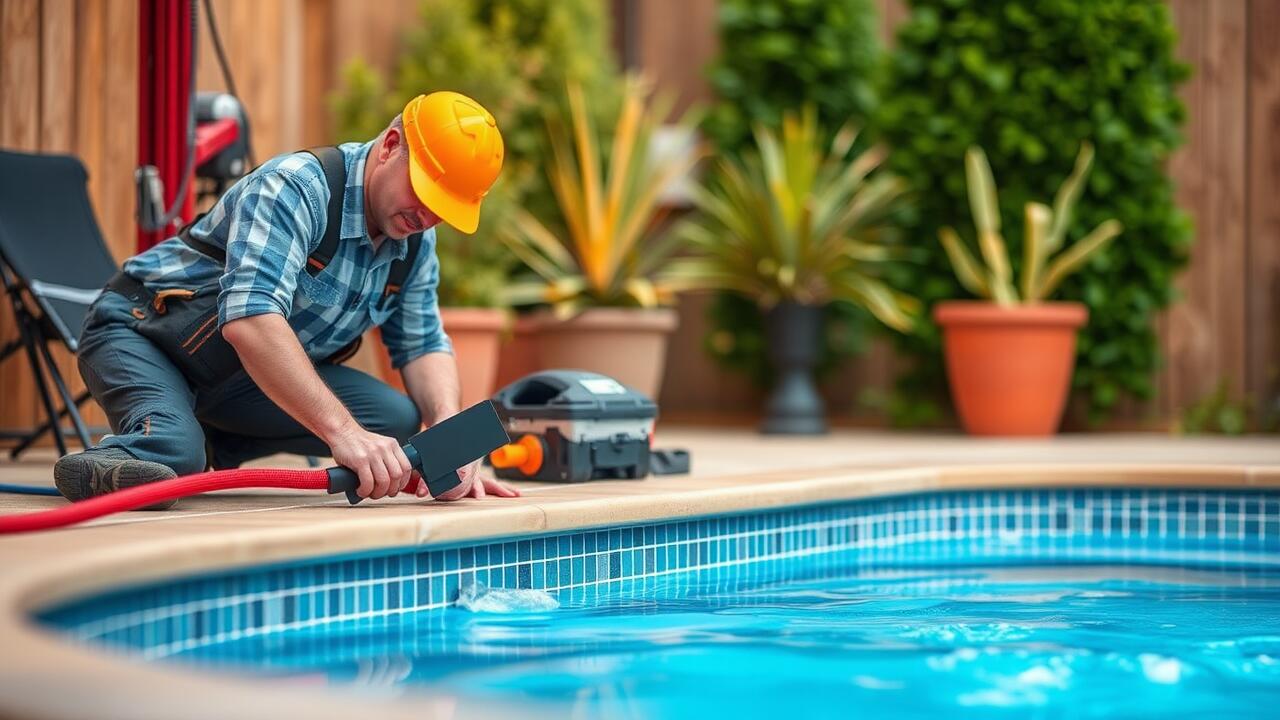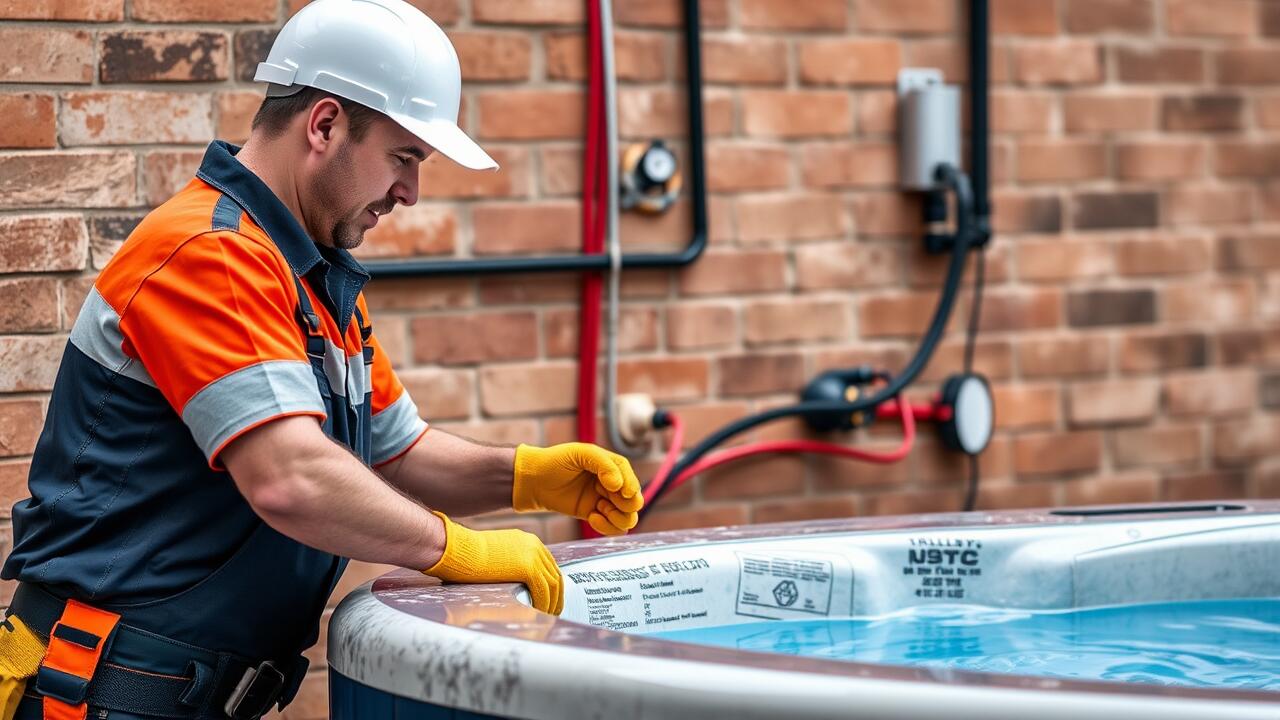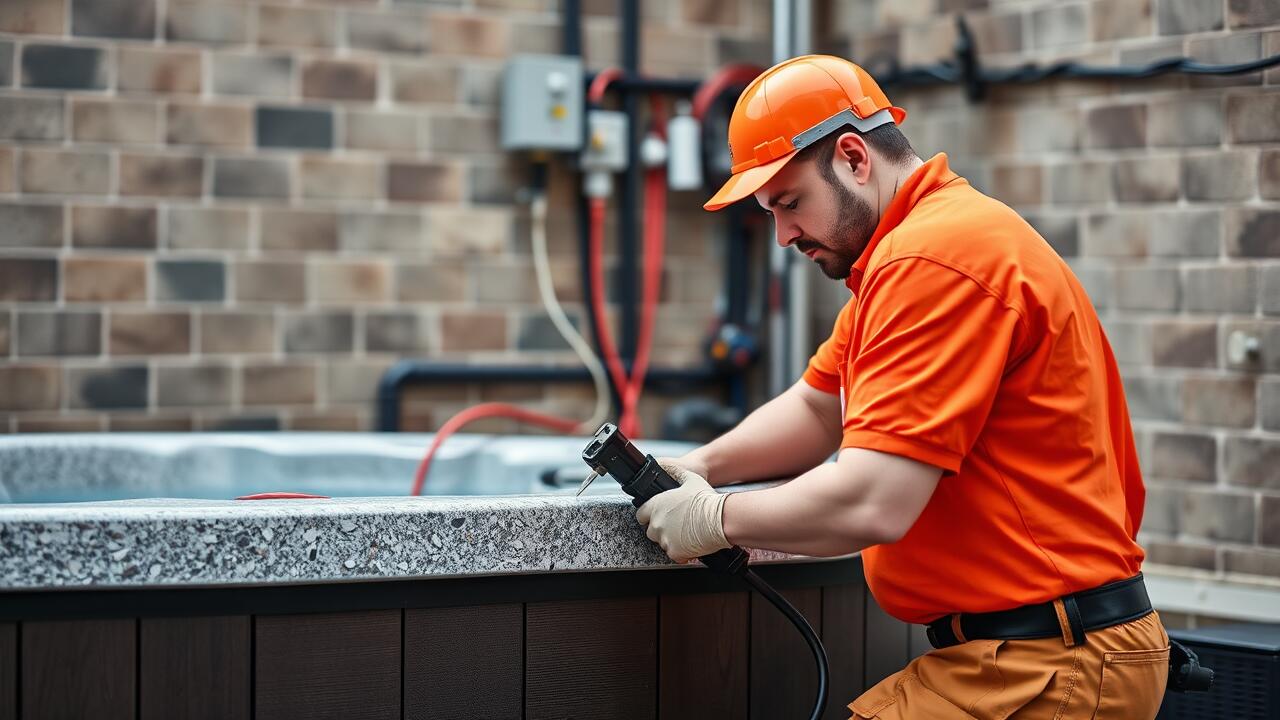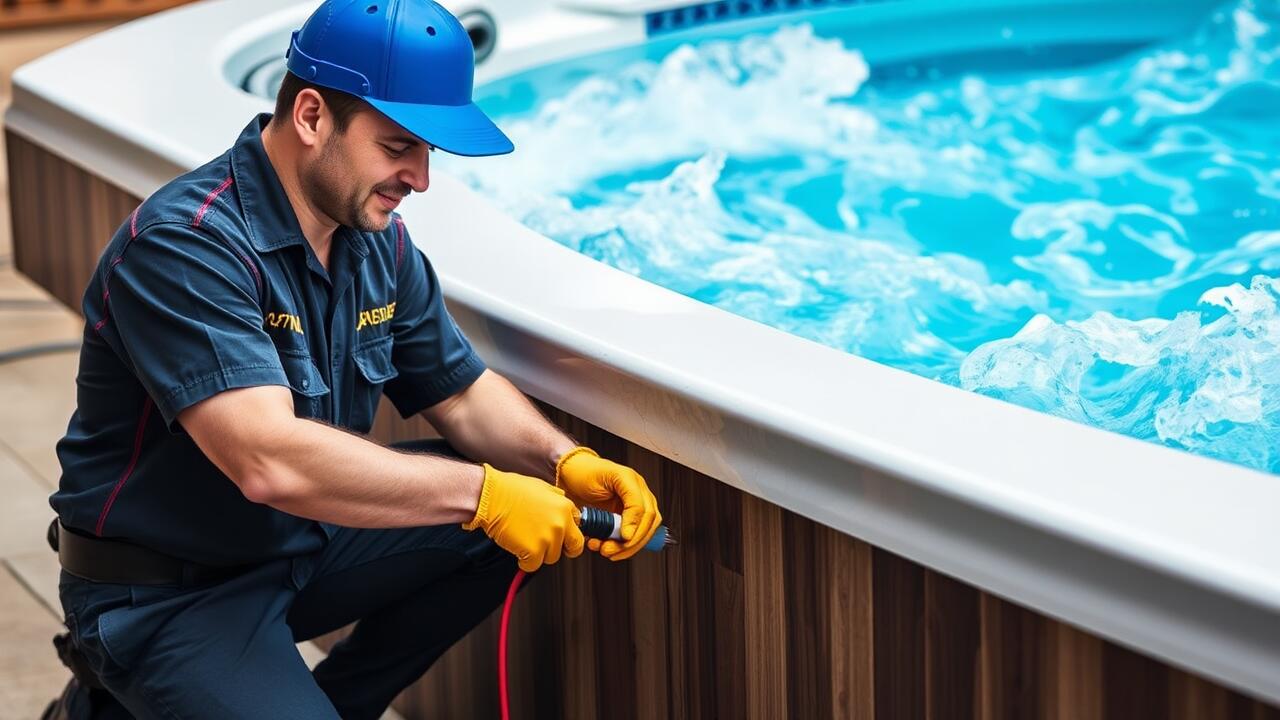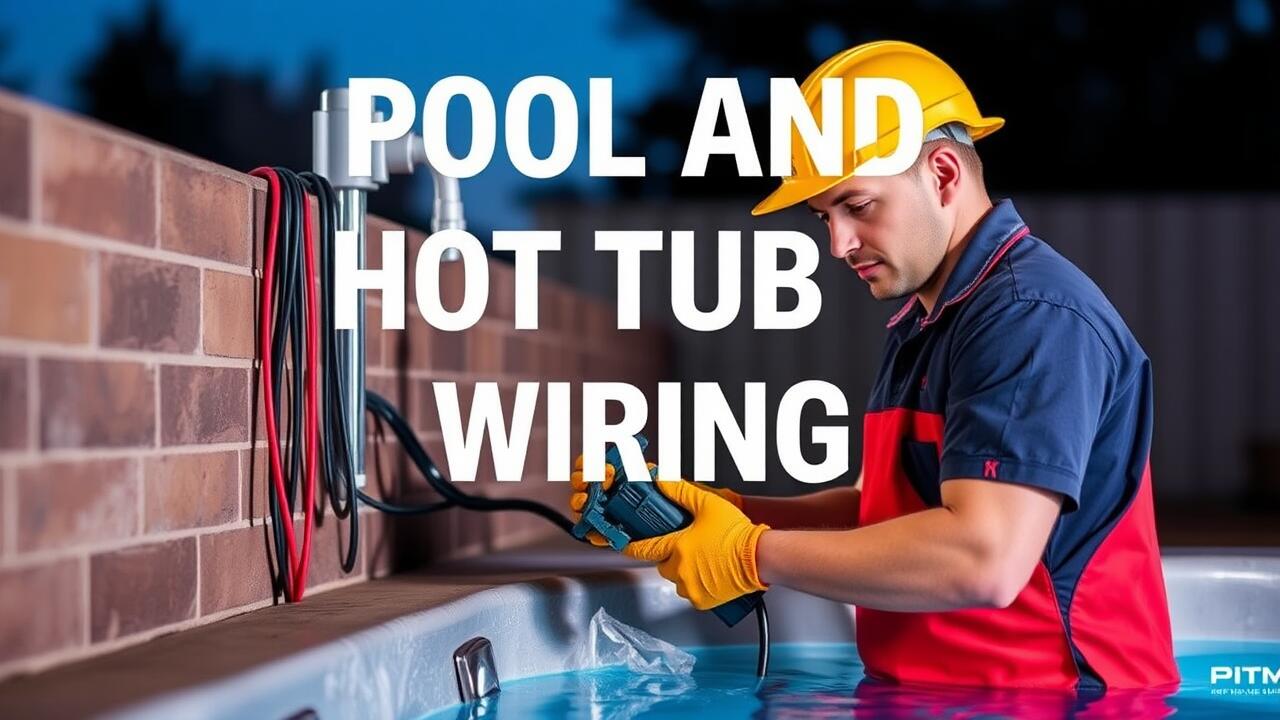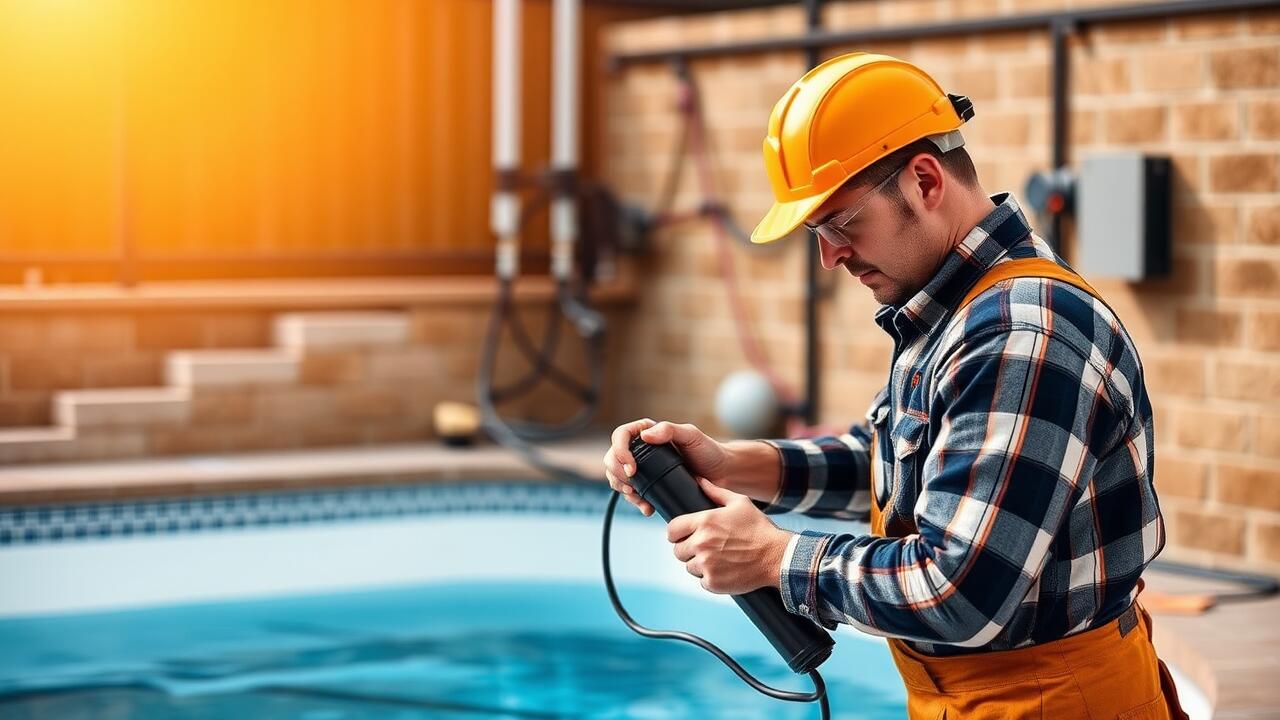
Bonding and Grounding in Pool Installations
Bonding and grounding are crucial components in ensuring the safety and reliability of pool installations. Proper bonding effectively connects all metallic parts of the pool, such as ladders, rails, and pumps, preventing electrical shock hazards. Grounding, on the other hand, provides a path for fault currents to safely dissipate into the earth, reducing the risk of electric shock in the event of equipment failure. Following local codes related to bonding and grounding is essential to maintain safety standards.
For those involved in Pool and Hot Tub Wiring in Kingwood, Houston, understanding the specifics of bonding and grounding is vital. Installers should be familiar with the required materials and methods to ensure compliance with the National Electrical Code (NEC). This knowledge will not only enhance safety but also promote the longevity of the equipment being installed. Adhering to these guidelines protects pool users and provides peace of mind to homeowners about their installations.
Techniques for Effective Bonding
Effective bonding is essential for maintaining electrical safety in pool installations. This process involves connecting all metallic components to a common ground, which helps prevent potential shocks and ensures that any stray electrical current has a safe path to the ground. Using appropriate copper bonding wire, typically sized according to local codes, is crucial for achieving adequate conductivity. Bonding jumpers should be secured to all accessible metallic parts around the pool, including ladders, lights, and metal railings.
Testing the continuity of the bonding connections regularly can help identify any loose or corroded connections that could compromise safety. It's also important to follow the National Electrical Code (NEC) guidelines specific to pool equipment. Professionals experienced in Pool and Hot Tub Wiring in Kingwood, Houston, can provide expertise in implementing these techniques, ensuring that all installations meet safety standards and operate efficiently.
Electrical Panels and Pool Equipment
Electrical panels play a crucial role in managing the power supply for pool equipment. They serve as the central point for circuit distribution, ensuring that all electrical components function safely and efficiently. Selecting the right panel size is vital, as it must accommodate the combined load of the associated equipment, such as pumps, heaters, and lighting. Pool and Hot Tub Wiring in Kingwood, Houston, often requires special considerations to ensure compliance with local codes and safety standards.
Proper installation of electrical panels is essential to reduce the risk of electrical hazards. Maintaining adequate clearances around equipment promotes airflow and reduces the chance of overheating. Additionally, panels should be easily accessible for routine maintenance and emergency situations. Understanding the specific requirements of pool equipment can guide homeowners in selecting the most suitable electrical panel for their needs.
Recommended Panel Sizes for Pool Installations
When determining the appropriate panel sizes for pool installations, understanding the total load requirements is crucial. A standard residential swimming pool often necessitates a dedicated circuit for its pump, heater, lighting, and any additional features such as fountains or waterfalls. Depending on the equipment being used, a minimum of a 100-amp panel is frequently recommended to accommodate the electrical demands safely without risking overload.
For those in warmer climates or areas with higher electrical consumption, such as the Pool and Hot Tub Wiring in Kingwood, Houston region, an upgraded panel size might be necessary. An increase to a 200-amp panel can provide greater flexibility for future expansions or added amenities, ensuring reliable operation and compliance with local electrical codes. Proper sizing of the electrical panel is essential for efficient pool operation and the safety of all users.
Wiring Methods for Pool Lighting
When planning the wiring for pool lighting, it is essential to select the appropriate methods to ensure safety and efficiency. Underwater lighting fixtures should be connected with proper junction boxes, rated for wet locations. Incorporating GFCI (Ground Fault Circuit Interrupter) protection is crucial to prevent electrical shocks, particularly in wet environments. Additionally, using low-voltage lighting options can enhance safety while offering the same aesthetic appeal.
Considering the specific requirements for various types of fixtures will guide the selection of suitable wiring methods. For instance, LED lights often require different configurations than traditional incandescent options. Consulting local electrical codes alongside professional guidance can be beneficial, especially for homeowners interested in Pool and Hot Tub Wiring in Kingwood, Houston. Choosing the right products and installation techniques promotes a reliable and safe pool environment.
Best Practices for Safe Pool Lighting
When planning lighting for pool areas, it is essential to select fixtures that are specifically designed for wet locations. These fixtures should be rated for moisture exposure to ensure both safety and durability. In addition, using low voltage lighting can significantly reduce the risk of electrical hazards. Ideally, all wiring should be done according to the National Electrical Code (NEC) guidelines, which specify that the wiring for pool lighting must be suitable for the environment it is placed in.
Proper installation techniques are crucial to maintaining safety standards. All electrical connections should be watertight to prevent water infiltration, and installations should utilize protective conduits. Regular inspections of the lighting systems should be performed to identify any wear or damage that could pose risks. For those needing professional expertise, contacting specialists in Pool and Hot Tub Wiring in Kingwood, Houston, can ensure that installations adhere to safety protocols and local codes.
FAQS
What are the recommended wiring distances for pool equipment?
The recommended wiring distances for pool equipment vary depending on the type of equipment and local codes, but typically, wiring should be at least 5 feet away from the pool's edge.
Why is bonding and grounding important in pool installations?
Bonding and grounding are crucial for safety, as they help prevent electrical shocks and ensure that any stray electrical currents are safely directed away from people and equipment.
What techniques can be used for effective bonding in pool installations?
Effective bonding techniques include using copper bonding wire, connecting all metallic parts of the pool, and ensuring proper connections to the pool's grounding system.
What size electrical panel is recommended for pool installations?
The recommended panel size for pool installations typically starts at 100 amps, but larger panels may be necessary depending on the total load of the equipment being used.
What are the best practices for wiring pool lighting?
Best practices for wiring pool lighting include using waterproof fixtures, ensuring wiring is buried at least 18 inches underground, and following the National Electrical Code (NEC) requirements for pool lighting installations.
